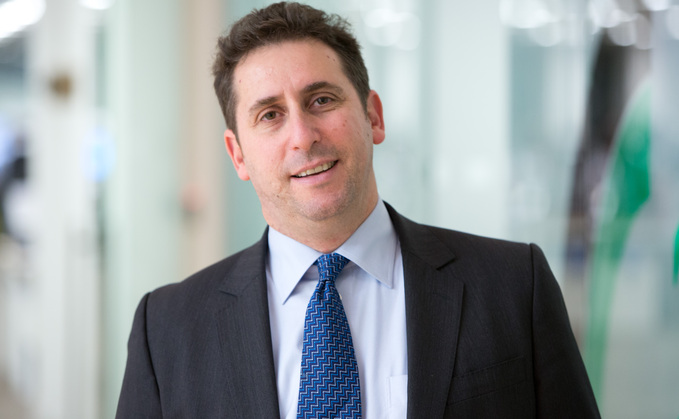
Cardano's Kerrin Rosenberg says it was 'no surprise' that the LDI system could not cope
The events of the past few days have rocked the UK pensions world. We saw a sharp increase in gilt yields which led to a fire-sale of assets and liquidity squeeze just days after the new chancellor Kwasi Kwarteng announced his controversial mini-Budget.
As the industry takes stock on what has been one of the most volatile weeks ever in the UK bonds markets, PP has spoken to trustees and consultants about how it all happened, what could happen next, and what schemes need to do now.
Defined benefit pension trustees have had to act swiftly in ways they have probably never had to - dealing with collateral calls coming in one after the other, particularly for pooled liability-driven investment (LDI) funds.
The Bank of England (BoE) has acknowledged that the rapid disorderly rise in the yield is systemically dangerous to the pensions industry, and its temporary liquidity injection provided on 28 September has helped to dampen the volatility. But despite this, uncertainty remains.
Unprecedented collateral calls
Pension funds had to meet collateral calls for their LDI portfolios earlier this year when gilt yields rose. The first round of collateral calls for LDI customers in June/July went reasonably smoothly because yield rises back then were more orderly. But the issue this time was that, in a lot of cases, there was a lot less time to do the transfer of collateral.
Cardano UK CEO Kerrin Rosenberg says: "When you get these cash calls from your managers, you normally you have three or four days to respond. But [this week] we saw a 200 basis point rise in three days, and when managers asked for cash, instead of giving you four days, they gave you just one day to provide the cash."
Ross Trustees trustee director Roger Mattingly explains the sheer speed of the collateral calls he has dealt with this week: "You receive two emails and you think it's the same email but of course it's not - it's a capital call followed by another capital call. You have to check the amounts to make sure that you're looking at a different email and most of the time you are."
LCP partner Dan Mikulskis explains that one problem was that a lot of collateral that had been set up had been used up the last time round, adding: "Schemes have been spending the whole summer or whole year planning for scenarios of rates going higher - it's not that they weren't aware of it. But the speed of rates rising this time round meant that accelerating those collateral plans in place wasn't really possible.
"Ultimately, the risk is the manager will be forced to close out some or all of hedging if you don't meet collateral calls on time. There will have been cases where calls were missed and managers will have had to reduce exposure," he added.
Sudden stress situation in gilt markets
LDI strategies have been dubbed a ‘timebomb' by much of the national press, but many in the pensions industry disagree. There was also speculation in the press that pension funds were close to becoming insolvent, but this narrative has been dismissed by experts, with many pointing out that for most schemes, funding has improved.
Cardano's Rosenberg says that the market lost confidence in the gilt market and it's "not a surprise to anyone" that the LDI system can't handle such a significant yield rise over such a short period of time.
"It's just like it's not a surprise to anyone that Barclays' retail customers can't all take their money out of the bank in one morning, for example," he adds.
Rosenberg says it is important to remember that all financial systems require confidence to operate.
"There isn't a single part of our financial system that can operate safely when there is a lack of confidence. Banks need to maintain prudent buffers under regulation. Those prudent buffers are there to handle some form of stress, but they're not designed to handle a complete loss of confidence in the system. And that's exactly what we have in our market."
PAN Trustees chairman Steve Delo agrees that it is the sudden stress situation that caused the problems in the market: "We have a situation where sensible decisions have been taken by pension schemes in a sensible way over the years to put on large LDI positions. LDI has served everyone very well. But in this circumstance, the aggregation of it all across the industry has resulted in panic and urgency, and that's what we've had to deal with."
Widely used investment vehicles are now not quite as flexible or as liquid as everyone perhaps thought they would be during a stress situation, he adds: "Suddenly everything becomes cumbersome, locked up, bureaucratic at a time where swift decisions need to be taken while still trying to maintain robust governance."
Schemes have faced very difficult decisions in the past week. They could decide to just let their LDI hedge drift on - but it depends on the underlying contract with the LDI manager.
As Mattingly says: "You could let the hedging drift, but you may not have the choice because you then need to look at the contracts that these LDI arrangements, and some of the contracts have a power of attorney whereby the contract requires the liquidity to be provided to keep the hedge in place.
"If the liquidity is not there, it becomes much more of a decision to be made. You want to take the company along with you as well - so we're having to make sure we include chief financial officers and finance directors to make sure that everybody's aware of what's going on."
Mattingly is involved with 15 pension schemes, and with a lot of them, "there is a reasonable degree of liquidity in most of them at the moment, and we have maintained the hedging levels but that's obviously been put under strain".
What next for LDI portfolios?
The next stage is understanding whether that has happened to the pension scheme and what it means.
"From a scenario, actuarial science point of view, we now need to work out how high yields need to go to before liquidity runs out," says Mattingly.
Delo says that, at the pension schemes he has been working with, the governance models have held up quite well and investment committees have been able to move at pace.
"Schemes that have historically spent more time in properly understanding LDI and thinking through their collateral headroom and waterfalls have probably been okay. Those who were a bit dismissive of it are probably now having to scratch around," he adds.
Schemes now need to act quickly to shore up their LDI portfolios before the BoE's short-term quantitative easing ends.
Delo said: "I think everyone is sucking in a bit of air and holding their breath given it is unclear how this all unwinds over the next couple of weeks. The problem might have moved down the track a little, but could happen again and that's why everyone is having a really careful think about it. Investment consultants have a lot of work to get through and a lot of schemes to advise. It's been a rollercoaster!"
Mattingly says the BoE intervention has had some impact on reducing gilt yields but this may be just sufficient for trustees and their advisers to catch their breath.
"How trustees respond will also depend on how asset managers also respond to these financially chaotic days," he adds.
Cardano's Rosenberg says the bank will not stop rate rises - they will only act to stop the market going into freefall.
"The message for the industry is get your book in order, rebalance, and reload your collateral," he says. "At the moment, the main activity is selling quality assets to replenish collateral pools. That is sensible and once those collateral pools have been replenished, then the system will be able to stomach more of a rate rise and the bank will allow rates to rise. All they're going to do is not allow it to go into freefall, and I think we should assume that's going to be their policy from now on."
One problem is that the secondary market of illiquids will become absolutely inundated with sellers if we are not careful, warned Mattingly.
"Haircuts could be taken on illiquid assets if that were the last resort to keep hedging levels in place, and that could be quite material," he said. "It's a scientific judgement as to whether to let the hedging levels drift and not be maintained versus realising assets that may not be liquid and may not be realisable at levels that one would hope especially with the falls in other markets as well.
"And of course, the last thing you want to do is suddenly to have to disinvest a large amount of money to the time when the other assets have fallen significantly in value as well."
While the BoE's QE injection gives the industry has a chance to breathe, it is imperative that trustees, advisers, and asset managers use this time wisely to reload collateral, take stock of what has happened and reassess where schemes are.







